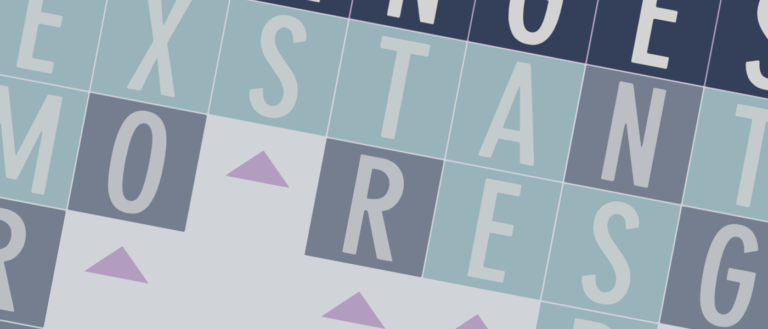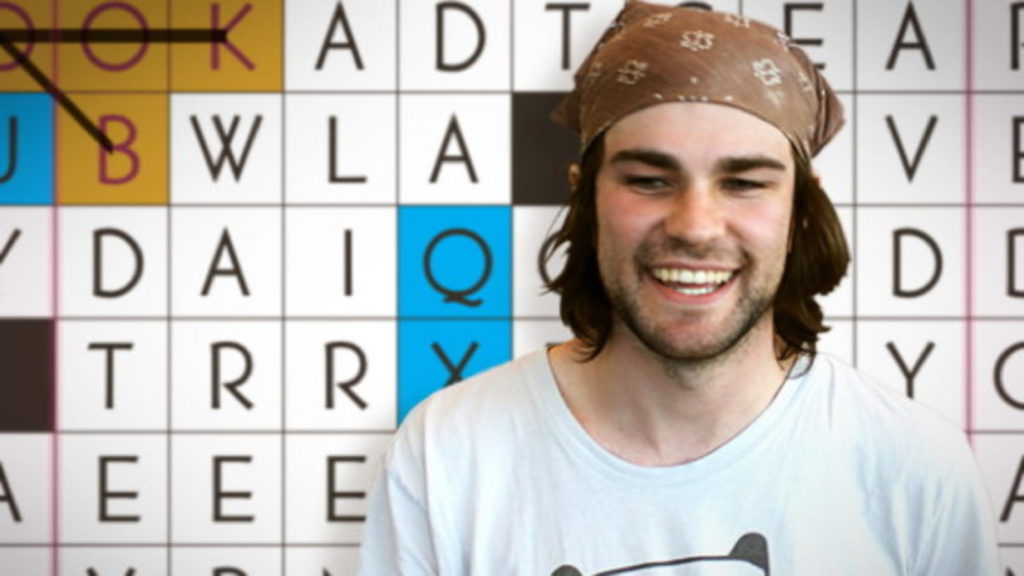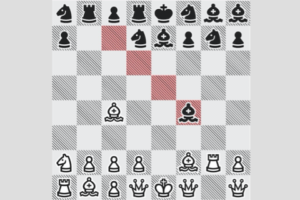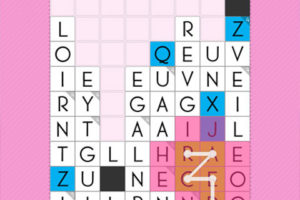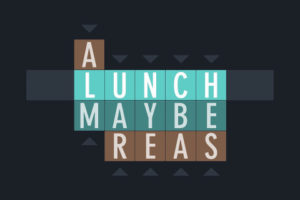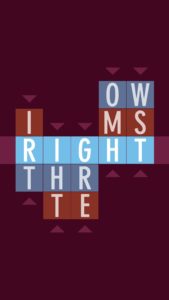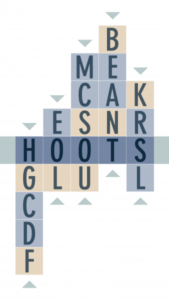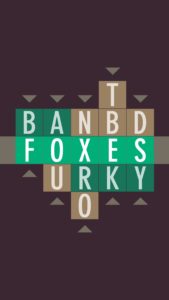If you’re not yet playing Zach Gage’s Typeshift (out now, free), I recommend you stop reading this and go and download it immediately. It’s a seriously masterful word puzzler and, without a doubt, one of my favorite iOS releases of the year so far. Since I’m such a big Typeshift fan, you can imagine how excited I was when Zach recently agreed to an interview with the site. We ended up chatting about not only that, but also about how he originally got into game development, his extensive back catalog, what he’s working on next, and a whole lot more besides.
It’s a great interview, check it out:
The name Zach Gage will probably already be familiar to most people reading this, but for those who aren’t in the know, can I ask you to introduce yourself and talk a bit about your background?
Haha… I dunno if it will, but it sure would be fun if my name is that well known! I started programming games when I was younger since my mom wouldn’t let me buy games, but was happy to buy me tools to make my own. When I got older I went to college and studied fine art, and then continued on to graduate school where I got my MFA in New Media Art. I fell back into games almost by accident after seeing how awful the original Tetris was on iOS and trying to make a more touch-screen-appropriate block-dropping game. I still do conceptual artwork, so since then it’s been all games and art for me.
To date, you’ve released eight games on iOS (many of which have achieved classic and cult status). When designing a game, do you follow any particular rules or ethos? I guess what I’m asking, essentially is: To you, what makes a Zach Gage game a Zach Gage game?
My core goal is always to get players to think critically, and then reward that critical thinking… and to make that entire process very accessible. The structure of all my games tends to be the sort of thing you can hold in your head in it’s entirety, so that you can make guesses at how you might play better in the future, and then try those guesses out in the game.
This kind of structure can be really scary to people who are used to having their hands held and told exactly what to do through long tutorials, so I do a lot of work to set players up to be comfortable experimenting through other more subtle ways. I gave a talk about it a few years ago.
What’s the elevator pitch for your latest release Typeshift?
It’s Anagrams meets Word Search, with a sprinkle of Crosswords.
In most anagram games, you search for new combinations within a single word, but in Typeshift, you search within three to five words stacked & scrambled up together. Shift columns of letters up and down as you try to spell words in the center row. Play continues until you used all letters in a puzzle at least once.
Typeshift is the third entry in a loose trilogy of games that re-imagine classic newspaper puzzles, like word searches (SpellTower) and chess problems (Really Bad Chess), for the digital era. Where did the idea come from to do something like this? And are you planning on making more games in a similar vein?
I sort of fell into it by accident. I love working with older game literacies (words, cards, dice, classic boardgames, etc), and I also really love building games that are simple to understand but ultimately deep and complex. I think when you combine those two things you end up with a lot of prototypes that look like newspaper games. Once I’d made SpellTower it struck me what a shockingly unexplored niche modern newspaper games are. We have digital newspapers, but we don’t really have digital newspaper games pages, and because of that there isn’t much evolution happening in the newspaper games area. So we get a lot of digital versions of paper games, but very few modern designs taking advantage of what digital games offer.
It’s a fun area to explore because there’s just so much low hanging fruit. For example, if you look at Really Bad Chess, there have been a million chess variations, and even digital versions of many variations, but they’re mostly invented by people sitting at a chess board trying to come up with cool things to do. Someone sitting at a chess board is very unlikely to come up with Really Bad Chess because most people don’t have 4 identical sets of chess pieces.
Typeshift is similar. It’s not a very complicated rule-set, but it’s one that would literally not be possible outside a digital game.
What kind of features and updates do you have planned for Typeshift?
More packs of puzzles is the main thing. I have some small ideas for different kinds of modes and expanding on the daily puzzle, but right now I’m trying to keep it simple and have scheduled updates for more puzzles.
You collaborated with Merriam-Webster on SpellTower and Typeshift. How did this partnership happen?
I’ve been talking to Merriam-Webster for a long time. I wanted to get a premium dictionary into SpellTower because I used to get a lot of emails from people complaining about words being missing from the dictionary. But the thing is, most of the time those people had spelled the word wrong. It’s pretty awkward to reply to someone that actually they’re just a bad speller, so I thought getting a real dictionary might cut down on that. Once I had Typeshift coming together it made sense to really put our partnership into high gear, so we did!
Typeshift launched as part of Apple’s ‘Celebrating Indie Games’ promotion. What can you tell me about how this opportunity came about?
Basically Apple contacted me and asked if I’d be interested in being part of a promotion they were running. There wasn’t much more information than that at the time, but when Apple asks if you want to be in a big promotion you say yes! 🙂
Apple recently introduced a permanent spot on the App Store reserved exclusively for indie games. How big of a boon will this be to indie developers in terms of discoverability and exposure going forward, do you think?
It’s tough to really know anything for certain in the App Store, but I think it will be a really good thing. There are a lot of people in the world who don’t really know that indie games are a thing at all, and there are also a lot of people who love indie games. Having a dedicated category will help get through to the former that these games are coming from real people and not giant companies, and provide a gathering space for the latter.
Given the success you’ve had on the App Store so far, what advice would you offer to anyone who may be considering getting into iOS game development as an indie?
It’s tough to give blanket (or short) advice for stuff like this. The App Store is a really competitive place, but ultimately it is a place that rewards craft and originality. I guess I’d say take risks, make small interesting stuff, don’t quit your day job, and be prepared to be in it for the long haul before you’ll reap career-supporting rewards.
I know you’re probably pretty much solely focused on supporting and updating Typeshift at the moment, but can you say if you have any future games or apps in the works?
Right now I plan to spend the rest of 2017 supporting Typeshift, putting together some new art pieces, updating some of my older apps, prototyping some new games, and putting out a billiards iOS game I’ve been kicking around for a while towards the end of the year.
And that’s a wrap! Thank you, Zach, for giving such a great interview!
Typeshift is available on the App Store for the low, low price of free. And a full list of all Zach’s previous iOS games and apps is available here. To stay updated on what he’s currently working on — such as the upcoming billiards game mentioned above — be sure to follow @helvetica on Twitter.


